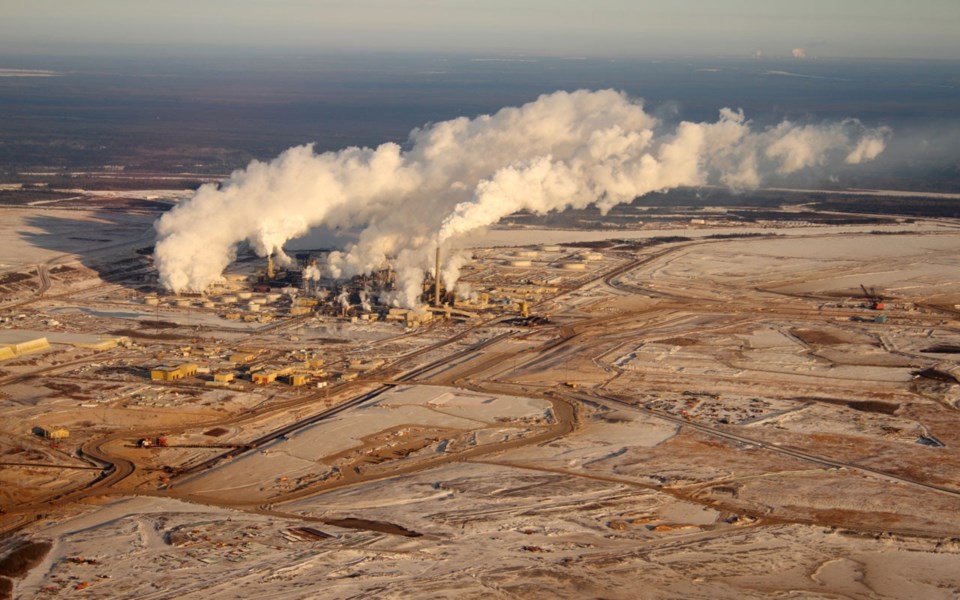If there was any doubt that Whistler holds a prominent place in Canada's tourism sector, it was firmly put to bed in the last week, as national and local headlines screamed outrage over the municipality's decision to send a letter asking oil and gas companies to help offset the costs of climate change.
Whistler was one of more than 16 municipalities across the province, as well as the Association of Vancouver Island and Coastal Communities (AVICC), representing 53 local governments, that wrote climate-accountability letters to various oil and gas companies around the globe (this has been going on since 2017). Nearby communities involved include Victoria, Saanich, and Squamish, and on Dec. 10, the District of West Vancouver posted an open letter to all fossil-fuel companies.
But we didn't see outrage until Whistler's letter prompted a reaction from Canadian Natural Resources Ltd. (CNRL) last week.
CNRL was the only Canadian company to be targeted in Whistler's letter-writing campaign conceived by West Coast Environmental Law, and which mostly targeted international producers. Sending the letters to foreign producers makes sense, as according to an article in the Financial Post, companies such as Suncor, Canadian Oil Sands and Husky are predominantly owned by non-Canadians, with 71 per cent of oilsands production foreign-owned, while foreign-based companies control 24.2 per cent of the sector's production.
On the face of it, this type of campaign has merit, but given the recent history of relations between B.C. and Alberta, and in consideration of what Alberta has just gone through—a public dressing down by Quebec over "dirty-oil" while it quashed any notion of an Energy East Pipeline revival, and the decision by Alberta Premier Rachel Notley to impose mandatory production cuts on the oil sector to reduce an oil glut due to the inability to get the oil to market—it was salt on an open wound.
Let's not forget that between 2014 and 2018, direct and indirect jobs in the sector have dropped by roughly 350,000, and the number of social assistance cases in Alberta has doubled in 10 years from 28,000 people to 56,000.
And despite facing deficits for several years, Alberta's equalization payments to Quebec this year will total $13 billion—though one must remember that Alberta's GDP per capita was nearly $77,500 last year, compared to the national average of $58,000.
Alberta is considered a "have" province and does not qualify for any equalization.
But the simple fact of the matter is that the whole world is facing a planet-altering crisis in climate change, and fighting with each other in the sandbox and engaging in tit-for-tat antics is not going to get us anywhere.
With hindsight, what would have been a positive way forward would have been to invite the gas and energy sector to Whistler to talk solutions—not demand money from them.
Having said that, the fossil-fuel sector has been aware their products would impact the environment for close to 60 years. Yet as an industry, it continues to expand, raking in huge profits while at the same time calling out anyone who questions its impact on the climate.
As a tourist destination we are hardly blameless in the climate-change equation. According to a 2018 study published in the scientific journal Nature Climate Change, tourism accounts for around eight per cent of global greenhouse gas emissions.
Air travel was the main culprit, and the researchers suggested the high-polluting industry would become increasingly problematic as the world gets richer and there is more demand for luxury travel.
The UN World Tourism Organization in 2007 found that the transport sector, including air, car and rail, generates the largest proportion, with 75 per cent of all emissions. The accommodation sector accounts for approximately 20 per cent of emissions from tourism. This involves heating, air-conditioning and the maintenance of bars, restaurants, pools and so on.
Three million people come to Whistler every year, and we celebrate this as a great success allowing our tourism operators, local businesses and our community to thrive.
But let's not kid ourselves; this is impacting climate change just like all tourism does.
And we can't even seem to ban plastic bags, stop outside heaters and gas fires from being left on all the time, get shops to close their doors, get a corridor transit plan in place to get people out of their cars or get the municipality to fund the long-promised Climate Change Officer position.
Do we not need to get our own house in order before we start demanding others do the same?
We are making some headway in Whistler, but there is no escaping that climate change is costing Whistler millions of dollars and those costs will only go up.
We are increasing bus service, we are demanding more energy-efficient buildings, we are moving to zero waste, but these are grains of sand compared to the emissions caused globally by the fossil-fuel megalodon circling our way of life.
So what I want for Christmas is for the Canadian and global leaders in the fossil-fuel industries to stop thinking about their profits and start thinking about how to transition their industries and employees into clean energy so that their own children will enjoy the same planet we have today.
Let's all sit down and have that conversation.




